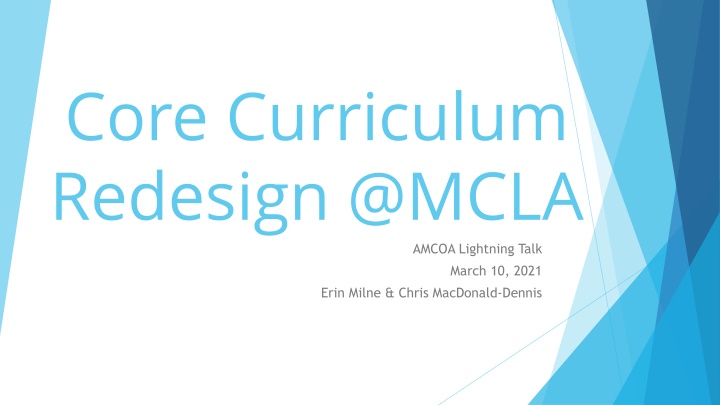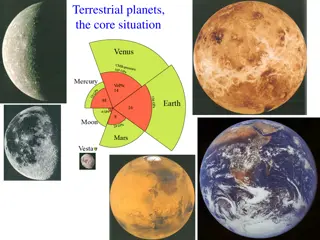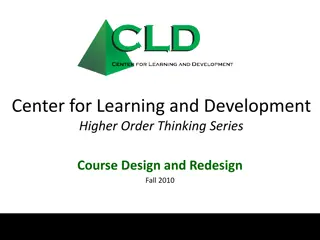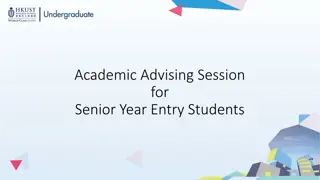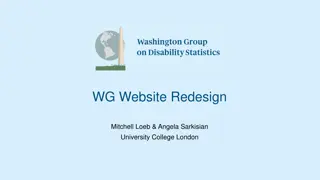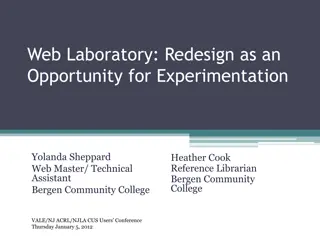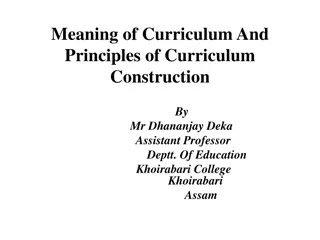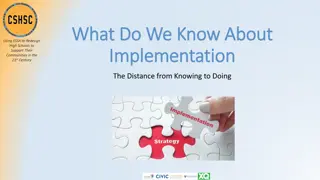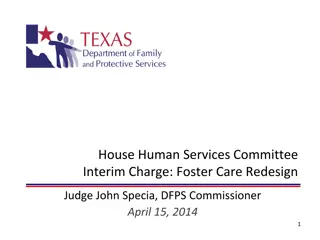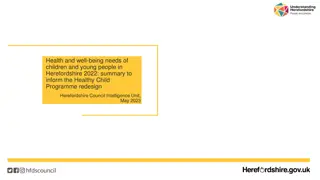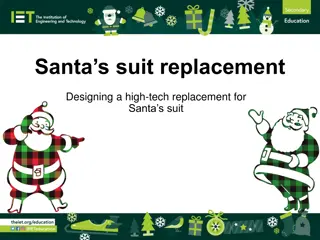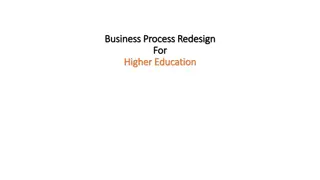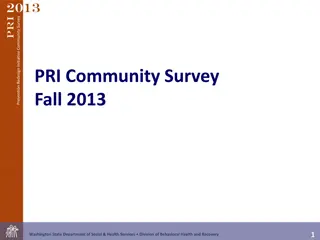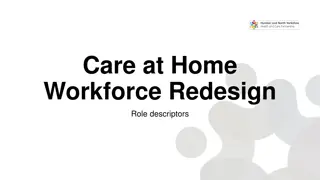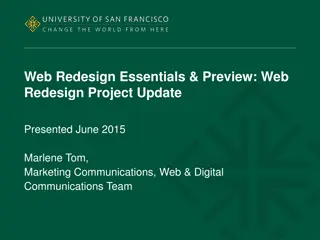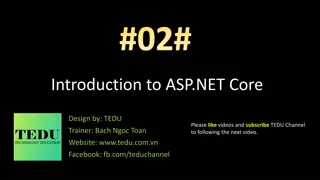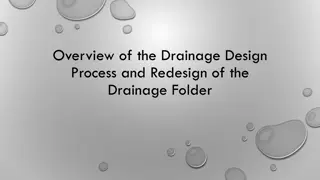Core Curriculum Redesign @MCLA
This lightning talk on core curriculum redesign at MCLAAMCOA by Erin Milne and Chris MacDonald-Dennis covers innovative approaches and strategies implemented to enhance academic programs.
Download Presentation

Please find below an Image/Link to download the presentation.
The content on the website is provided AS IS for your information and personal use only. It may not be sold, licensed, or shared on other websites without obtaining consent from the author.If you encounter any issues during the download, it is possible that the publisher has removed the file from their server.
You are allowed to download the files provided on this website for personal or commercial use, subject to the condition that they are used lawfully. All files are the property of their respective owners.
The content on the website is provided AS IS for your information and personal use only. It may not be sold, licensed, or shared on other websites without obtaining consent from the author.
E N D
Presentation Transcript
Core Curriculum Redesign @MCLA AMCOA Lightning Talk March 10, 2021 Erin Milne & Chris MacDonald-Dennis
Lightning Talk Overview Developing SLOs New Focus: Integrative Learning Infusing DEI Initiatives Where Are We Now? A Bit of Context
Context How did we get here?
No shared understanding of the purpose of the Core Curriculum. Key Issues with the "Old Core" Difficult to staff the original plan for interdisciplinary Core courses. Lack of oversight and support structures.
Initial conversations around Core revision AAC&U Institute on Integrative Learning & Signature Work The new Core Curriculum goes live! Redesigning MCLA's Core Curriculum 2014 Summer 2018 Fall 2021 Summer 2016 Spring 2020 AAC&U Institute on General Education and Assessment Final structure of the revised Core Curriculum pass through governance
Student Learning Outcomes & Integrative Learning Aligning priorities across the Core
New Student Learning Outcomes Goal 1: MCLA s graduates are effective communicators who utilize multiple forms of expression to participate in our global community. Goal 2: MCLA s graduates engage in analytical inquiry to address complex problems. Goal 3: MCLA s graduates are active, engaged, and ethical individuals.
What is Integrative Learning? An approach to teaching that supports the development of skills enabling students to make connections among concepts and experiences, so they can apply information and skills to novel and complex contexts.
A Core Curriculum founded on principles of integrative learning prepares students to make connections across their curricular, co- curricular, and community experiences. Why an Integrative Core Curriculum? Students who can integrate their learning recognize and evaluate connections among diverse concepts, contexts, and lived experiences. Students who can integrate have the skills to create, innovate, and collaborate successfully in a diverse world.
Core Learning Outcome Integrative Learning Outcome Capstone Level Content Level Foundational Level Incoming Level Chooses a format, language, or visual representation in ways that enhance meaning, making clear the interdependence of language, thought, and expression. Student is able to skillfully negotiate a shared understanding across diverse audiences. Students choose appropriate form(s) of expression to effectively communicate with audiences from different backgrounds and perspectives. Chooses a format, language, or visual representation to explicitly connect content and form, demonstrating awareness of purpose and audience. Chooses a format, language, or visual representation that connects in a basic way what is being communicated (content) with how it is said (form). Produces an essay, a poster, a video, a PowerPoint presentation, etc. in an appropriate form. MCLA s graduates are effective communicators who utilize multiple forms of expression to participate in our global community. Demonstrates skillful use of high quality, credible, relevant sources from diverse perspectives to appropriately defend their positions. Demonstrates an attempt to use credible and/or relevant sources to support their positions. Students defend their positions making reference to diverse perspectives. Demonstrates consistent use of credible, relevant sources to defend their positions. Demonstrates an attempt to use sources to support their positions.
Core Learning Outcome Integrative Learning Outcome Capstone Level Content Level Foundational Level Incoming Level Presents in-depth information from relevant sources representing various points of view/approaches to construct a problem statement with evidence of most relevant contextual factors, and problem statement is adequately detailed. Presents information from relevant sources representing limited points of view/approaches to demonstrate the ability to construct a problem statement with evidence of most relevant contextual factors, but problem statement is superficial. Synthesizes in-depth information from relevant sources representing various points of view/ approaches to construct a clear and insightful problem statement with evidence of all relevant contextual factors. Students synthesize contrasting/ conflicting information and perspectives to accurately understand problems. Presents information from sources representing limited points of view/approaches in identifying a problem statement or related contextual factors. MCLA s graduates engage in analytical inquiry to address complex problems. Students apply contextually- appropriate methods and approaches when analyzing and solving problems. Identifies and applies the most appropriate approach(es) for solving the problem that apply within a specific context. Identifies multiple approaches for solving the problem, only some of which apply within a specific context. Identifies an approach for solving the problem that applies within a specific context. Identifies one or more solutions to a problem without regard to a specific context. Independently creates wholes out of multiple parts (synthesizes) or draws conclusions by combining examples, facts, or theories from more than one field of study or perspective. Students make connections across disciplines and personal experience when solving problems. Independently connects examples, facts, or theories from more than one field of study or perspective. When prompted, connects examples, facts, or theories from more than one field of study or perspective. When prompted, presents examples, facts, or theories from more than one field of study or perspective.
Integrative Learning Outcome Core Learning Outcome Capstone Level Content Level Foundational Level Incoming Level Envisions a future self that builds on past experiences across multiple and diverse contexts (e.g., works with ambiguity and risk, deals with frustration, considers ethical frameworks). Makes contributions to the learning community based on evaluation of strengths. Evaluates changes in own learning process over time. Identifies key recurring factors in their own effectiveness (e.g., works with ambiguity and risk, deals with frustration, considers ethical frameworks) and ways to address these factors. MCLA s graduates are active, engaged, and ethical individuals. Articulates strengths and challenges within specific performances or events. Begins to identify ways to increase effectiveness in future contexts. Students engage in meaningful self- reflection and evaluation of their own learning and contributions. Describes own performances with general descriptors of success and failure.
Revised Core Structure Developmental Opportunities for Integrative Learning Fully Aligned Student Learning Outcomes This Core Structure Map is also found in BOT retreat handout folder.
New Elements New Courses Health & Wellness First-Year Seminar Language, Culture & Communication Integrative Capstone Infused Throughout Civic Learning/Engagement Diversity, Equity, and Inclusion High Impact Practices
Diversity, Equity, and Inclusion Embedding initiatives at all levels.
DEI in MCLA's Core Curriculum DEI is an essential aspect of the broader Integrative Learning Framework Infused throughout the SLOs at all levels, in all domains Partnership with the Center for Teaching & Learning to support the development of Core courses Capstone Development Workshop Example: Capstone Course in Computer Science First Year Seminar Development Workshop Anti-Racist Pedagogies Faculty Learning Community Designated Seat for Chief Diversity Officer on the Core Curriculum Steering Committee
Where are we now? The work continues.
Where Are We Now? Initial Course Review by Core Curriculum Steering Committee Ongoing Review and Approval Process Assessment & Professional Development Communications Strategy
